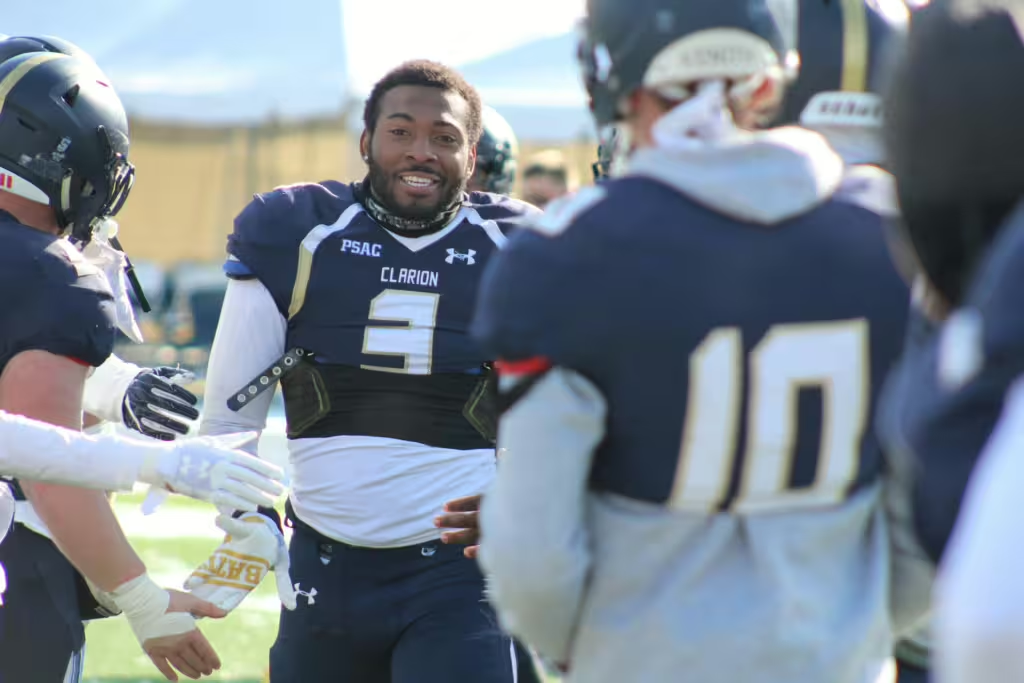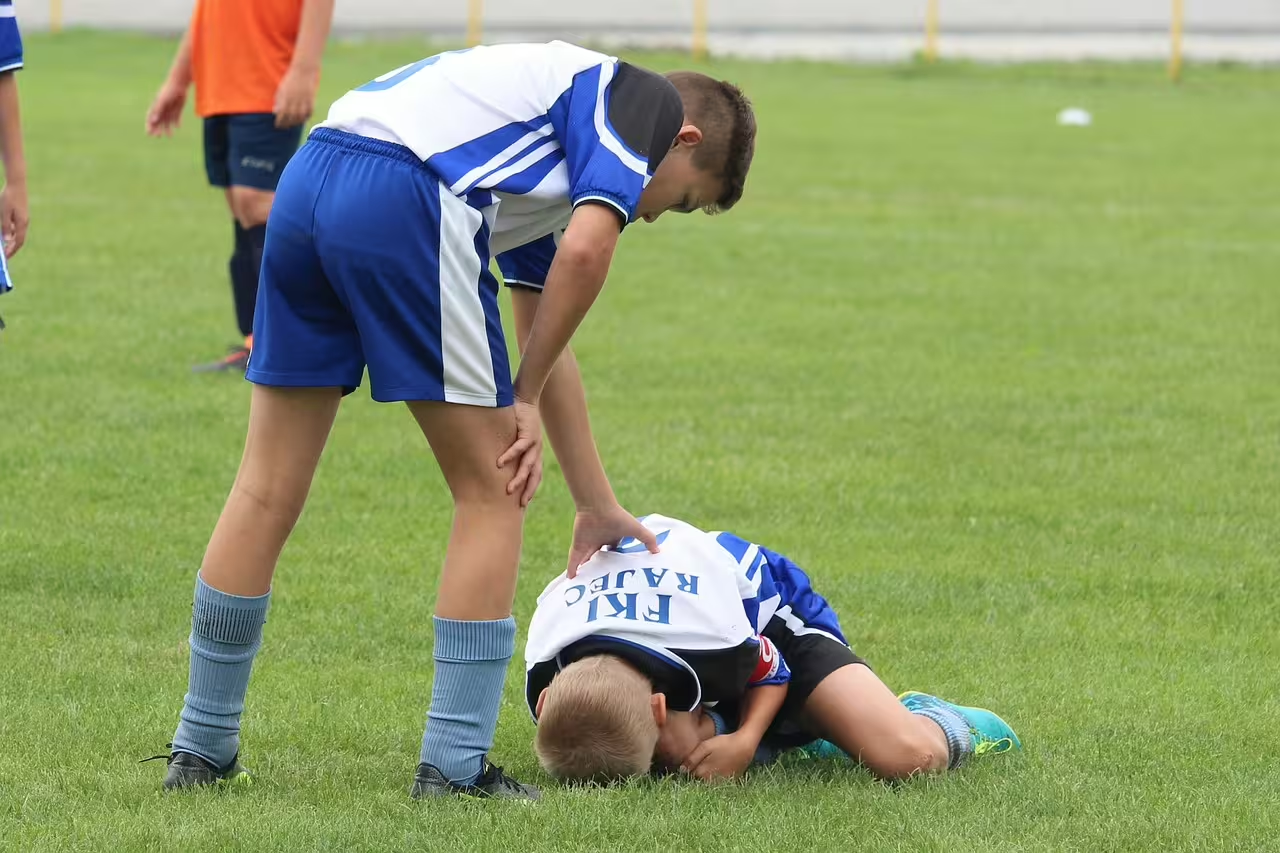Many parents spend years honing their child’s sports expertise so that they can one day enter the world of college sports. During those intervening years, your child may have poured countless hours into practices, games, tournaments, and training sessions, all with the hope of finding success through sports. In many cases, what motivated them was the dream of playing sports in college or even professionally. But what happens when those dreams….change?
Sure, years of youth sports have vastly shaped not only your child’s schedule, decisions, and conversations, they may have even shaped your entire family’s; not to mention your overall budget. The sad truth is, sometimes hearts just change. Your budding athlete may just find that the grind is too much. They may have gotten injured or might be seeing that the competition at higher levels is more than they bargained for. Perhaps their other hobbies, relationships, or academic pursuits are pulling them in a different direction.
Whatever the reason, that child has decided to “give up” on that sports dream that all of you have worked so hard to bring to fruition. This moment can be emotionally difficult for everyone involved and highly disappointing for parents who have put a lot into making their child a sports success. In many cases, this can feel like the end of an era, but what it actually is, is the beginning of a new chapter in your child’s life.
In this article, we will help parents to understand how to take these disappointing turns with grace; to help them realize that this is not a moment for mourning a lost dream, but a chance to guide your child into new and exciting opportunities. Finally, we will help provide parents with the tools they need in order to support their child’s new dreams, all while giving them actionable steps to do so.

Why Kids Step Away
Though individual reasons for stepping away from athletics will vary greatly in different kids and teens, we have put together some of the most common ones for parents who are hoping to better understand the usual “whys” behind the whole situation.
Burnout
Any parent whose child is involved in higher-level youth sports understands the rigorous demands of year-round training. Not only are practices intense and frequent, there is also a need for constant travel, and a greater pressure for athletes to perform at or above their best. Even the most passionate athlete would begin to fade under these rigors. Burnout is a common issue in overworked athletes and often is often evinced by a distinct a loss of joy. Chronic fatigue and a marked disinterest in competing can also be signs of burnout.
Injuries
The human body is not a perfect machine. Overuse of certain muscle groups and physical or even emotional stress can result in serious injuries. Sometimes, it simply can’t keep up with the intensity. Over time, repeated injuries, serious surgeries, or just the fear of re-injury can push young athletes into some very tough decisions about their future.
Academic Pressures
High school students, in particular, face added pressure from the academic side of things. At this stage of their lives, they are dealing with heavier course loads, college entrance exams, and additional extracurricular activities beyond sports. For some student athletes, the choice is to take the sustainable path offered by academics or struggle on trying to do a bit of everything.
Reality of Competition
If high school sports can get competitive, college sports are intensely so. You may not realize it, but only a small percentage of high school athletes go on to play at the collegiate level. This means that there is a very real chance that your child may not get into the school of their dreams. And ultimately, the whole rigorous process can prove disheartening, especially when opportunities don’t line up with expectations.
Shifting Interests
Adolescence is a time of growth and discovery for young people. As your teen matures, they may begin to discover hobbies that lay outside the athletic world. They might find that music and art stir their passions or that they want to pursue social causes, scouts, games, clubs, or more.
Emotional Impact
For Kids
Stepping away from competitive athletics might make a young person feel as though losing part of their identity; even if they are doing so because they have found other interests to take that place. Those who have been disappointed by circumstances beyond their control may grieve the dream they once had. Others might be afraid of disappointing their parents, peers, or coaches. Most, if not all, will also worry about what comes next.
For Parents
Parents of these now former athletes may feel a similar sense of loss. This is perfectly natural, of course. Indeed, after years of supporting their child’s dream—financially, emotionally, and logistically—sadness or even frustration are going to occur. In all of this though, it’s important that parents remember that these decisions are not about failure, they are about transition.
Supporting Your Athlete
Listen Without Judgment
When the decision to step away does arise, take the time to listen to your child. At this delicate stage, they need space to share their feelings without fear of criticism. Remember to listen first, ask questions gently, and validate their desires, feelings, and concerns.
Avoid Making It About You
In moments like these, it’s easy for us parents to forget our own disappointment at what is, in our eyes, a “wasted investment,” but this is not healthy. Try and put things into perspective. Your child isn’t letting you down, they are following their own shifting path of life.
Emphasize Self-Worth Beyond Sports
No matter their decision, take the time to remind them that their value is not defined by athletic achievements. Highlight their other good qualities, such as kindness, creativity, intelligence, work ethic; basically anything that can stand independent of their sports journey.

Practical Guidance
Talk About the Future
Now that they have more time and a new path to forge, it is up to us as parents to encourage our teens to buckle down and consider their new long-term goals. Discuss their future plans, find out what excites them academically or even professionally. Talk about how they can they channel their discipline and their many skills and positive qualities into new opportunities for their future.
Provide Perspective on College Scholarships
Try and remember that college scholarships are not only defined by a student’s athletic prowess. These funding options are available in countless other areas—academics, arts, leadership, community service, to name a few. The trick is to reframe and restrategize about all the other ways that college can be accessible.
Adjust Family Routines
As your family schedule is no longer dictated by practices, games, and weekend travel, you may suddenly find yourself having a lot more free time. Don’t just take this time for yourselves, continue to do things as a family….just not sports. If you want to use your stolen time wisely, use it for family dinners or outings. But don’t forget to factor in rest and relaxation as well.
Manage Finances
Stepping away from sports will likely impact your wallet quite positively in the short term. You no longer need to spend on travel teams, sports camps, and new equipment, so why not try saving it? Parents might even consider reallocating those funds toward a college fund!
Hidden Upsides
Though stepping back can feel like a loss initially, it won’t always feel that way. Indeed, there are many positive experiences that can come about because of these shifting priorities:
- Reduced Stress: Without the need to juggle recruiting, camps, and constant performance pressure, stress levels will undoubtedly decrease.
- Broader Horizons: No sports means more time for kids to explore different academic disciplines, arts, or service opportunities.
- Improved Health: Exercise should be a priority at times, but less hard working sports time means a much-needed break from overtraining. This can also decrease the likelihood of further injuries.
- New Family Balance: More flexible schedules often equates to a meaningful increase in family time.

Cultured Athlete Says…
As you can see, a child’s decision to step away from sports may not be the dying dream we mistakenly believe it to be. Priorities change, life is long, and the hearts and minds of young people are and ought to be capricious. These lost desires to compete can feel like a major turning point for both kids and parents, but that can also represent a real, meaningful shift in their life’s goal. More importantly, giving up on athletics does not necessarily mean that they will not take the discipline, resilience, teamwork, and love of physical activity they gained, with them as they continue down the road of life.
Our role as parents is not to force them into things, it is to walk beside them, offering wisdom, guidance, and comfort, as best we can. If they do feel overwhelmed or show that they want to quit, we need only remind them that their worth is not tied to athletic scholarships or rosters. They are far more important than all that, as are their new dreams and desires. Dreams and children evolve and so, we parents must learn to evolve with them.
Discover more from CulturedAthlete
Subscribe to get the latest posts sent to your email.






